Social-Emotional Activities for Toddlers
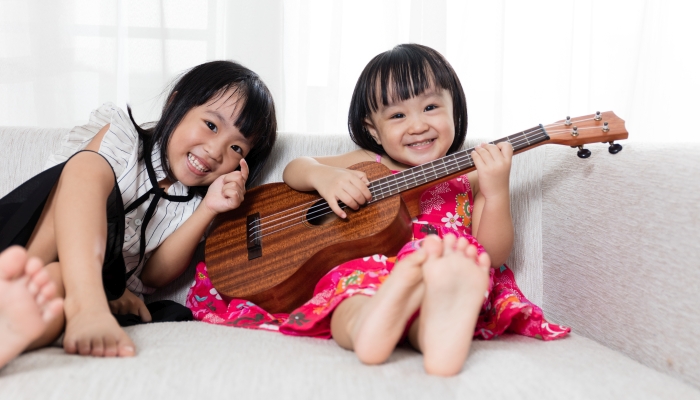
- Social-emotional activities will help your toddler develop the social and emotional skills needed to thrive in early childhood and beyond.
- Social-emotional activities support healthy behavior and relationships.
- Caregivers are necessary for social-emotional development in toddlers. Their brain and body connection is still developing, and they have difficulty solving complex problems on their own.
- Toddlers are still learning how to regulate emotions, develop relationships with others, and cope with challenges.
As a parent, you always want the best for your kids. Sometimes, we may look at academic performance as a sign of maturity and that our children are developing properly. But a child’s social and emotional development is also a good indicator of growth and development.
As they grow, toddlers’ social and emotional learning is essential for their overall development and wellbeing. They need to learn how to manage their emotions, develop positive social relationships, and cope with early childhood challenges.
Social-emotional activities for toddlers will help your child develop the skills needed to thrive in early childhood and beyond.
Social Emotional Development of Toddlers
Toddlers begin social emotional development from day one. The relationship they have with their caregivers is the most important because they are developing their primary attachment. Through bonding activities such as being held, fed, stroked, and gazed at, babies develop trust and a sense of safety.
Their feelings of safety and trust continue into toddlerhood with parents who are engaged with them on a regular basis. Playful games and talking to each other through baby babble and facial expressions helps social emotional development to bloom.
As an engaged caregiver, you may be wondering what are some developmentally appropriate social emotional milestones for your child.
By 2 years old, most developing children can do the following:
- Copy or mirror others, especially adults and older children
- Get excited to spend time with other children
- Show more independence
- Show defiant behavior (doing what he has been told not to)
- Participate in parallel play
Several activities can help toddlers develop social and emotional skills, including:
- Singing songs
- Playing games
- Reading stories
- Pretending to be someone else
- Talking about emotions
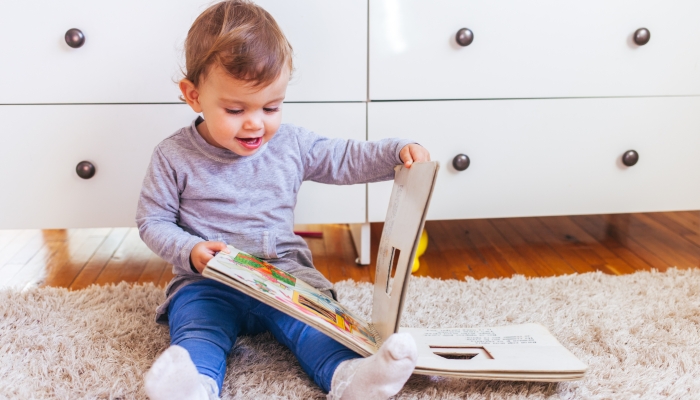
Social-Emotional Activities and Their Benefits For Toddlers
Social-emotional activities help children develop the social and emotional skills necessary for healthy relationships and self-esteem. Some of the life skills children can learn through social-emotional activities include:
Managing Emotions
Toddlers have big feelings. Tantrums and meltdowns are a normal part of development, but so is learning how to manage those big feelings in healthy ways. At ages two and three, most toddlers don’t have a label for their feelings, which is why their behavior seems out of control.
If they can verbally communicate their feelings, their parent can respond appropriately. This takes work, practice, and time. You can help your child name feelings by broadcasting their experience to them.
Example: A playmate takes a toy from your child, and your child starts to scream, cry, or even retaliate. This is good! Your child is protesting and trying to stand up for themselves, but they need a little help.
You can get down to their eye level and help them deal with their crisis by saying, “You are upset/mad/sad that your friend took your toy; I understand how upsetting that might be.” Wait for your child to calm down before problem-solving. A hug, squeezing a stuffed animal, or taking a time-in break with you may help.
Visuals help children recognize their feelings and the feelings of others. You could have a poster with emotional faces and words. Your child can point to the one they feel, and you can validate their emotion. This works great for building empathy, too.
You can ask your child to point to the face or emotion they think another person is experiencing. Do this for both positive and challenging emotions.
Developing Positive Social Relationships
Toddlers are wired for play to explore and learn about their development. If other kids are present, this may bring up some unique challenges. It’s common for children to want the same toy, feel jealous of another kid, or appear overwhelmed by other children. Social-emotional activities can help your child build necessary social-emotional skills.
Once they are calm, give them two choices for how to respond: “You can ask for your toy back or play with something else. Which would you like to do?” Giving only two choices helps your child focus and remain calm.
Toddlers are still learning about relationships from their primary caregivers at this age. Parents can model healthy social interactions with each other, their friends and family members, and their child. Using social-emotional games, a caregiver can maintain a calm voice, make eye contact, and use simple language to help their toddler assimilate these skills.
Coping With Challenges
Life is fraught with challenges starting from the very beginning. Toddlers have challenges that they learn to adapt to, avoid, or confront each day. The tricky part for young children is their brain and body connection is still developing. Therefore they have difficulty solving complex problems are their own.
It’s perfectly normal for a toddler to respond to challenges with tantrums, crying, aggression, or yelling. They don’t have the language skills to talk through and work out an issue, so becoming loud is their way of being noticed. Social-emotional skills help small kids learn how to deal with difficult situations through practice, repetition, and caregiver encouragement.
Flexibility
Due to black-and-white thinking, a toddler can sometimes appear rigid in approaching social and emotional issues. They may be “stubborn” or “strong-willed.” You can help your child be more flexible by playing social-emotional games focusing on compromise, communication, and generosity. This behavior modeled by caregivers is essential for a child to develop flexibility.
Growth Mindset
A growth mindset, as opposed to a fixed mindset, refers to a person’s belief that they can learn new things and look at challenges as opportunities. A fixed mindset is the opposite; intelligence or learning stops at some point and cannot move forward.
It’s common for young children to give up or say “I can’t” when trying something they haven’t mastered. To foster a growth mindset, which is essential for development and wellbeing, they need plenty of opportunities to try new things and coaching around making mistakes or focusing on progress, not perfection.
Social-emotional learning activities offer ways for children to learn to do something new and feel accomplished and masterful about their skills.
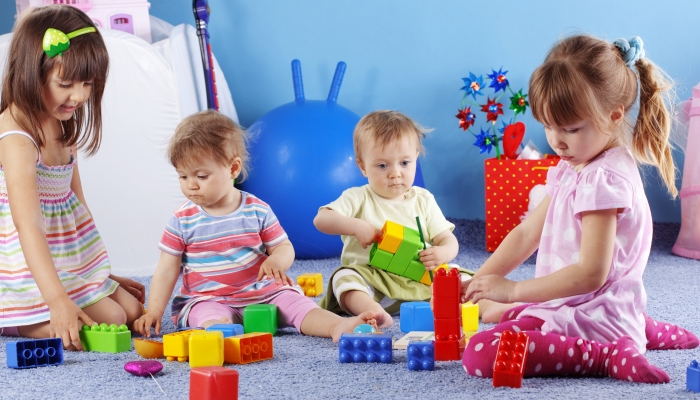
Why Is Social-Emotional Development During Toddlerhood Important?
Toddlers are at a crucial stage in their social and emotional development. They are learning to regulate their emotions, develop relationships with others, and cope with early childhood challenges.
Strong, loving, supportive relationships are the foundation for toddlers to learn how to deal with and grow from life’s joys and challenges. A home with loving interaction, affection, and healthy boundaries helps a young child thrive at this stage and beyond.
Social-emotional learning is an alternative to other forms of punishment, such as spanking or time-outs. It teaches valuable skills that include more than just obedience. Rather, social-emotional learning is about fostering healthy give and take relationships.
Toddlerhood is when kids begin to develop self-awareness, spacial awareness, and how they impact others. As they recognize the link between behavior and consequences, positive or negative, your toddler can make better decisions as they grow up.
How Can You Support Your Toddler’s Social And Emotional Development?
Caregivers who engage in social-emotional development activities can help toddlers develop the skills they need to thrive during this vital stage of development.
Four core practices tend to make social and emotional learning programs more effective. A recent social-emotional learning program study found that “programs using four core practices, referred to by the acronym SAFE, were more successful in their targeted outcomes than programs that did not use these practices” (Durlak, Weissberg, Dymnicki, Taylor, & Schellinger, 2011).
A care giver can practice this SAFE acronym when designing social-emotional activities for their toddler.
SAFE activities are:
- Sequenced. Use a connected and coordinated set of activities to support repetition and practice.
- Active. Use a dynamic and varied forms of learning that are engaging and allow young children to practice and learn new skills in real-world situations.
- Focused. Have at least one component devoted to developing personal or social skills.
- Explicit. Social and emotional learning focus that targets specific skills rather than positive development in general.
5 Social-Emotional Activities For Toddlers
There are plenty of easy and fun social-emotional activities for toddlers that you can do at home. Try some of these with your child to give their social-emotional skills a boost.
Singing Songs
Songs are a great way to help toddlers express their emotions. They can also help toddlers learn about rhythm and rhyme, which can help develop language skills. Some of the best songs for social-emotional development are:
- “If You’re Happy and You Know It”
- “Thank You” by The Okee Dokee Brothers
- “Feel What You Feel” by Lisa Loeb
- “Stop & Go” by Ella Jenkins
- “Kindness is a Muscle” by The Universal Kids
Playing Games
Games help toddlers to learn about cooperation and turn-taking. Games can also support toddlers in practicing self-control and managing emotions. Fun games for your toddler could be:
- Jenga
- Candy Land
- Don’t Break The Ice
- Don’t Spill The Beans
- Musical Chairs
Reading Stories
Stories are a positive way to support toddlers in learning about their emotions. Stories can also help with building empathy and understanding the perspective of others. There are a few influential books we like for social-emotional development:
- “I Feel Silly: And Other Moods That Make My Day” by Jamie Lee Curtis
- “Stand Tall Molly Lou Melon” by David Catrow
- “How Full Is Your Bucket?” by Tom Rath and Mary Reckmeyer
- “Chrysanthemum” by Kevin Henkes
Pretend Play
Pretend play is one of the best ways for toddlers to practice managing emotions and to build social skills. It is also beneficial for toddlers to develop their imagination and creativity. Fun social-emotional activities for pretend play include:
- Dolls or stuffed animals with emotional faces
- Doctor play kits
- Puppets
- Dress-up
Talking About Emotions
Talking about emotions can support your toddler in developing their language for feelings. It also helps them to understand and communicate their emotions, develop general language skills, and learn about healthy relationships. There are ample opportunities to talk about emotions:
- Acknowledge your child’s emotions.
- Show and share your feelings with your child.
- Show your child affection.
- Encourage your toddler to try new things and reinforce the effort they are putting in.
- Set up play dates with other children their age.
We hope these social-emotional activities will help your toddler develop the social and emotional skills they need to be successful in their childhood and beyond. These activities will also help you build a valuable and irreplaceable connection with your toddler.
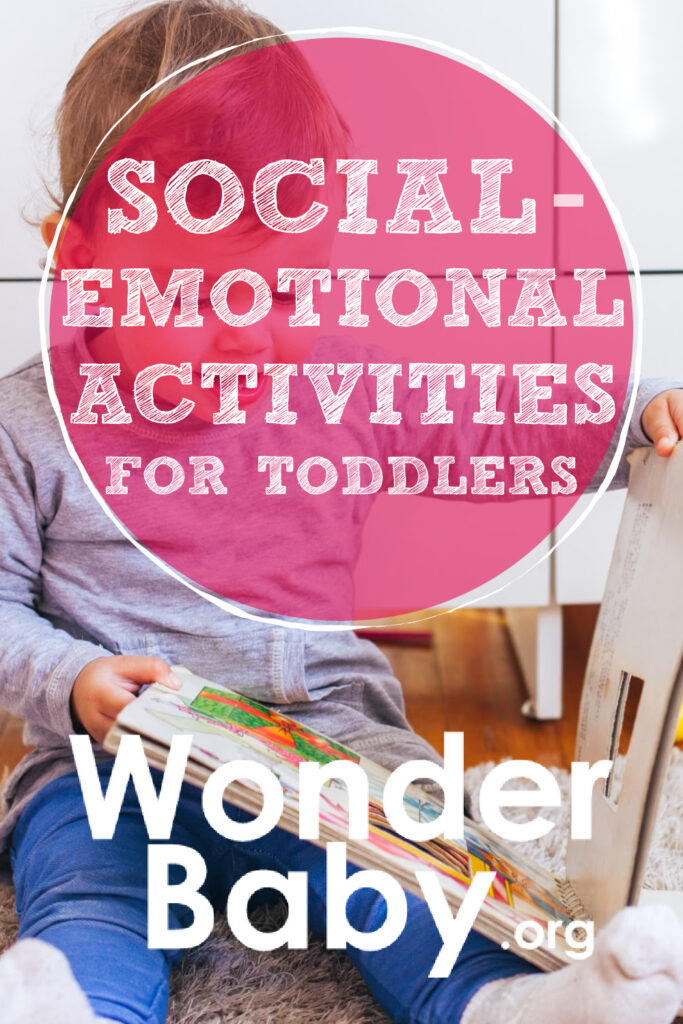
Related Posts
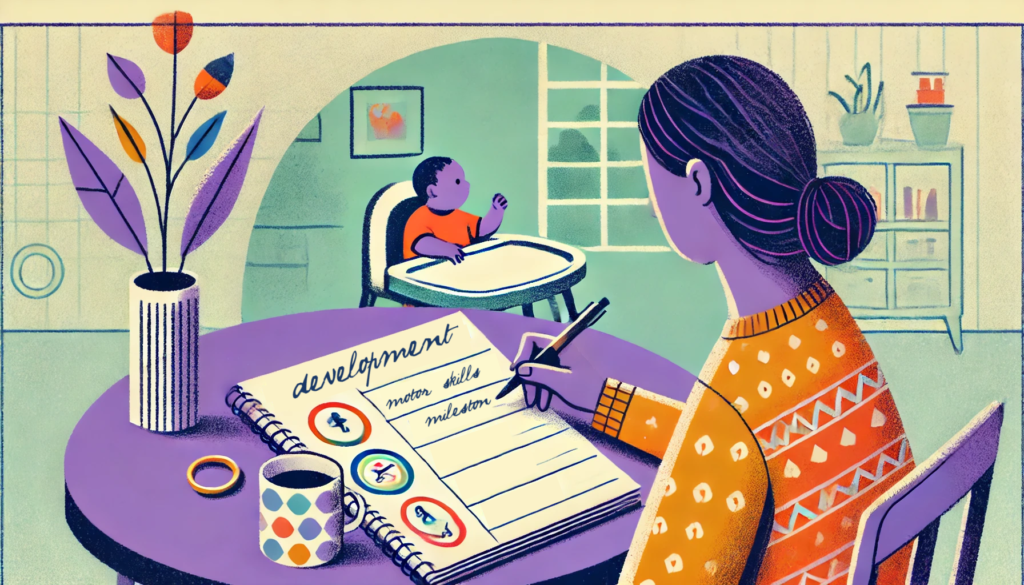
Development, Special Needs
How to Track Milestones for Developmentally Delayed Babies
Parents of developmentally delayed babies can explore practical tools and strategies to track milestones, celebrate progress, and support their child’s unique developmental journey.
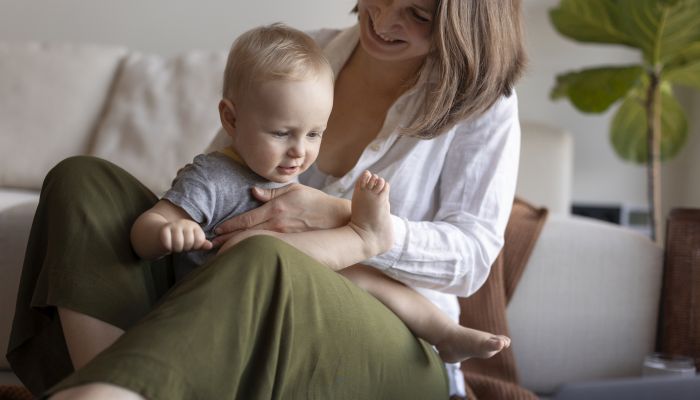
Fine and Gross Motor
5 Alternatives to Tummy Time for Babies with Motor Development Challenges
Does your baby struggle with tummy time due to motor development challenges? These alternatives to tummy time will offer the same benefits.
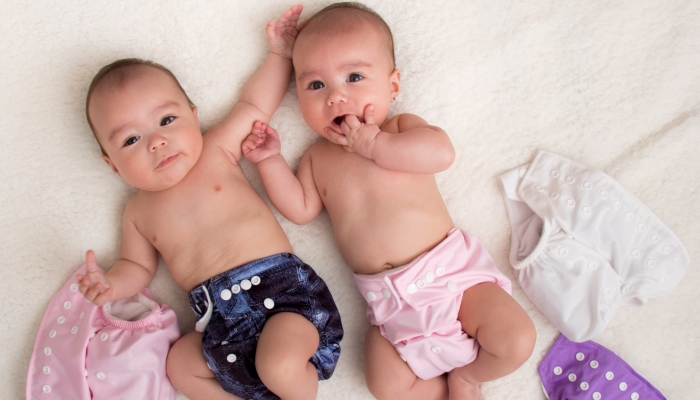
Development
Should Twins Share a Room?
Wondering if your twins should share a room? We’ll explore the pros and cons of room-sharing for twins right here before you make your decision.